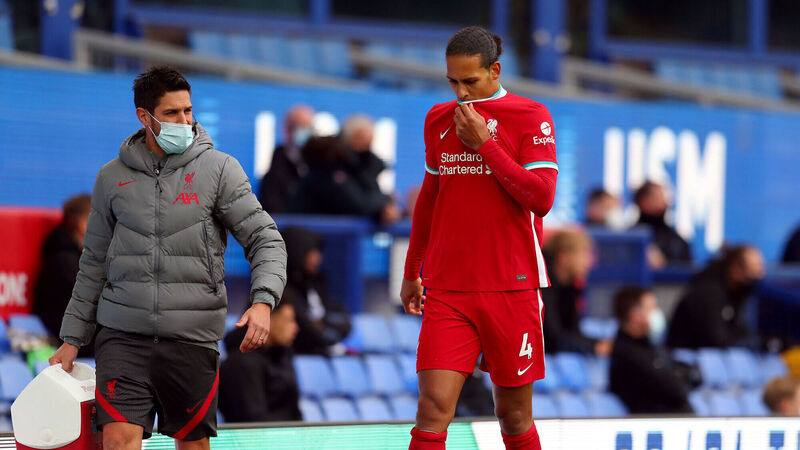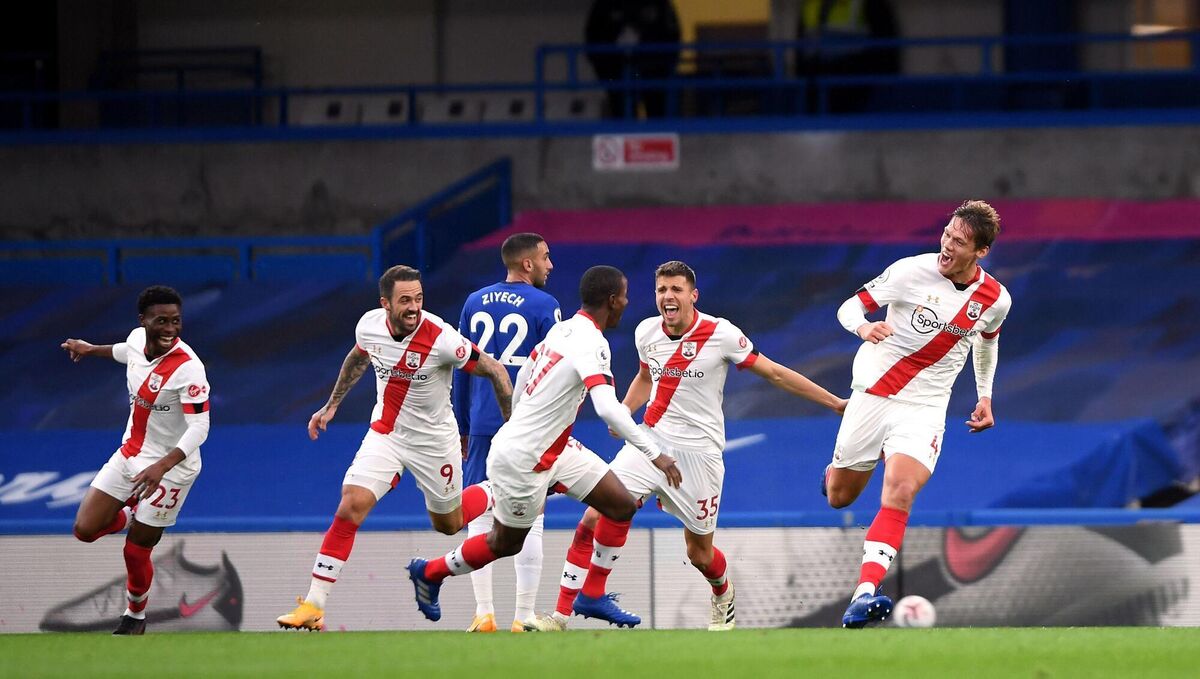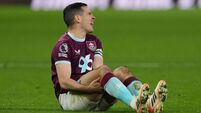Daniel Storey: How can Liverpool cope in Klopp's worse-case scenario?

Liverpool's Virgil van Dijk goes off injured at Goodison Park.
There is nothing inherently wrong with setting up a team to defend, but it inevitably lowers the threshold of patience. Fans pay — whether in person or in armchair — partly in the hope that their side will be successful but also to be entertained. Lose by attacking and you will eventually lose your job. Lose through safety-first grimness and you’ll lose trust more quickly.
Steve Bruce must accept that he does not need to impose these limits upon Newcastle United. He has signed eight players on permanent deals since being appointed at a cost — in transfer fees alone — of more than £90m. Four of those (accounting for £76m of the spend) are attacking players. Yet Bruce seems intent on making Newcastle more defensive, not less.
More importantly, the defensive plan is not working. Newcastle have allowed their opponents shots at a rate of 17.2 per game this season, comfortably the highest in the Premier League. Their strategy does not rely upon solid defending that frustrates opposition attacks but the hope that their goalkeeper will produce brilliant, consistent displays to keep goals out. Karl Darlow has been in fabulous form so far this season; he cannot do this alone.
And so supporters grow more frustrated, not because Newcastle are rooted to the bottom of the league or because they are certain candidates for a relegation struggle. But because they are allowed to dream bigger than this. Because they have every right to expect their side to try and expose their opposition’s frailties rather than merely flounder in the attempt to protect their own.

Same old Chelsea; same old Frank Lampard. For all the attacking talent at the Chelsea manager’s disposal — and Timo Werner and Kai Havertz clicked wonderfully against Southampton — it will count for nought if Lampard cannot find a balance between attack and defence that improves their repeated tendency to throw away points.
For all the positivity of establishing a two-goal lead on Saturday, Chelsea were never safe; they never are. Southampton had more shots and more shots on target than a Chelsea team that suffers from a tactical imbalance (too many players committed to attacks leaving them exposed to a counter) and continuous individual errors that stem from a lack of confidence.
We can reasonably argue that Chelsea should have committed a greater proportion of their transfer budget to a flagship central defensive leader, but the current personnel are performing way below their potential. Unless Lampard proves himself capable of reversing what is now an established trend, he will not succeed at Stamford Bridge.
Between September 30 and the international transfer window closing, Fulham made three moves to try and save a season that already looked bleak. Ruben Loftus-Cheek and Ademola Lookman joined on loan from Chelsea and RB Leipzig respectively. Tosin Adarabioyo was signed from Manchester City on a permanent deal. All three started against Sheffield United on Sunday.
Fulham looked transformed and would have won the game had Aleksandar Mitrovic not been guilty of dimness in Sheffield United’s penalty area and his own. Adarabioyo injected an immediate calmness to Fulham’s defending (although they were still vulnerable to crosses in open play) and Loftus-Cheek dictated tempo in the final third, conducting play midway into the opposition half.
But Lookman was the star. His career has stalled since moving to Everton in January 2017, starting just 15 league games in England and Germany since, but his confidence does not appear to be dented. He relentlessly dribbled directly at opponents and thrashed the ball past Aaron Ramsdale for Fulham’s goal. At 22, we must hope that he finally finds the regular minutes his development badly needs. He might also be Fulham’s season-changer.



